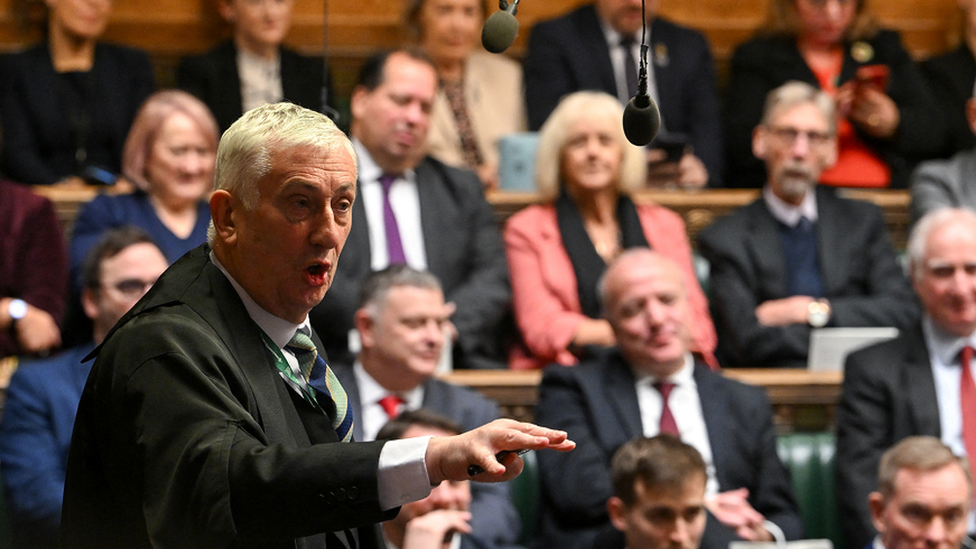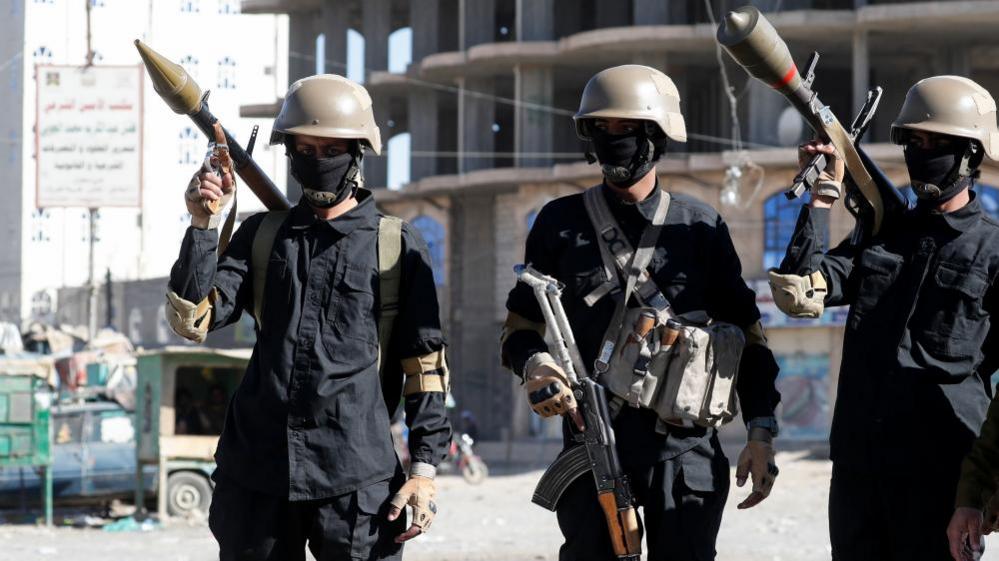Should Parliament be consulted before military action?
- Published

The prime minister argues that the air strikes conducted by the UK and America were legal, limited and proportionate.
Senior folk I speak to in government say they were left with no option.
Why? Because Houthi attacks have been crippling commercial shipping in the Red Sea, a vital artery in the world economy, forcing boats to slog all the way around Africa to reach Europe, rather than taking a short cut through the Suez Canal.
And the Houthis were ignoring consistent warnings to stop, or face consequences.
But the big question is whether the strikes will make the situation better, or worse.
And not just the economic situation. The geopolitical one too: the prospect of escalating conflict in the Middle East.
There are plenty more questions. Was this necessary? What does success look like? What would count as sufficient further provocation to justify more air strikes? How does this all end?
Expect questions like these, and plenty more, from MPs on Monday, when Rishi Sunak comes to the Commons to make a statement.
And here is another question: should the prime minister seek the permission of parliament in advance of military action?
The Liberal Democrats, Scottish National Party and Plaid Cymru all said Mr Sunak should have brought his plans to the Commons beforehand.
But the government doesn't have to.
This is because of what is known as the royal prerogative. You can read more about it in this explainer by The Constitution Unit at University College London., external
Prerogative powers used to lie in the hands of kings and queens. These days, most of them lie in the hands of ministers.
And military action is one of them.
But the last couple of decades has seen a shift in convention. There is a great briefing on this here from the House of Commons Library, external.
Ever since the Iraq war in 2003 - which was approved by parliament in advance - MPs have frequently demanded the right to be consulted.
The truth is since then, sometimes parliament has been given a say. And sometimes it hasn't.
In 2013, the then-Prime Minster David Cameron sought parliament's approval for UK air strikes on Syria beforehand. He wanted them to happen. Parliament didn't. And he said he would listen.
But Rishi Sunak defended his decision to sanction strikes on Yemen by citing two more recent precedents.
Theresa May authorised strikes on Syria in 2018 without parliamentary approval. And David Cameron did the same three years earlier - telling MPs afterwards, external.
Clearly, there is a difference - in scale, if not in principle - between isolated air strikes and the prospect of war. Although some will argue one could lead to the other.
And governments are always likely to argue they have to maintain the right to act quickly. To surprise an enemy.
But the moulding of convention over the perceived legitimacy or otherwise of the royal prerogative means the debate now is not merely on the merits of any armed response.
But on who has the right to be consulted.
Related topics
- Published25 March

- Published12 January 2024

